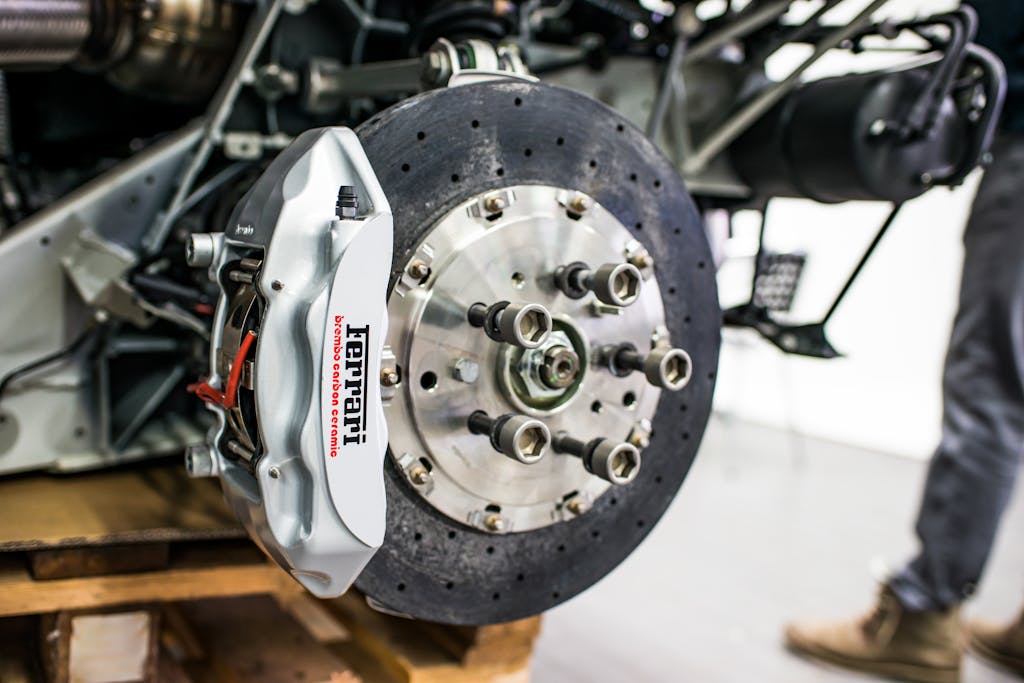How are Ford Aluminum Bodies Holding Up: The Ultimate Durability Test
Ford aluminum bodies are holding up well, with minimal issues reported. The lightweight construction improves fuel efficiency and performance without sacrificing durability and strength.
This innovative approach has been positively received by Ford customers and has helped the company stay ahead of its competitors in terms of design and technology. The aluminum bodies undergo rigorous testing and meet Ford’s high-quality standards, ensuring they can withstand the demands of everyday use.
Overall, Ford aluminum bodies have proven to be a reliable and long-lasting option for vehicle owners, providing both efficiency and durability in one package.
The Durability Test Process
Ford’s aluminum bodies are enduring rigorous durability tests to ensure their long-term performance. These tests comprehensively examine how well the aluminum bodies are holding up, ensuring top-notch quality and longevity for Ford vehicles.
Testing Methodology And Parameters
The durability of Ford aluminum bodies is put to the test through a rigorous testing methodology and set of parameters. Ford takes no chances when it comes to ensuring the strength and longevity of their aluminum bodies, subjecting them to various tests that simulate real-world conditions and usage.
One of the primary tests that Ford conducts is the corrosion resistance test. This test evaluates how well the aluminum body resists corrosion over time, as exposure to elements like salt and moisture can lead to deterioration. By subjecting the aluminum to a highly corrosive environment, Ford can determine its resistance levels and make any necessary improvements to enhance its durability.
Ford also conducts tests that simulate the daily wear and tear experienced by vehicles. One key test is the gravel test, where small particles are fired at the body of the vehicle to mimic the impact of stones kicked up from the road. This test assesses the aluminum body’s ability to withstand these impacts without suffering significant damage or deformation.
To ensure long-term durability, Ford subjects their aluminum bodies to a series of fatigue tests. These tests involve repeated flexing and bending of the body, similar to what it would endure during regular use. By simulating years of driving conditions, Ford can assess any potential weaknesses and make design modifications accordingly. This meticulous approach guarantees that Ford aluminum bodies can withstand the test of time and maintain their structural integrity.
Comparison With Traditional Steel Bodies
When comparing the durability of Ford aluminum bodies to traditional steel bodies, there are several key factors to consider. While steel has long been the preferred material for vehicle manufacturing due to its inherent strength, aluminum has proven itself to be a worthy contender.
One significant advantage of aluminum is its lightweight nature, which contributes to improved fuel efficiency and overall performance. However, skeptics have questioned whether this lightweight material can match the durability and structural integrity of steel.
Ford’s rigorous testing process has demonstrated that their aluminum bodies are more than capable of holding up against their steel counterparts. In fact, in many instances, they have shown better resistance to corrosion and impact damage.
Additionally, the aluminum bodies have also showcased remarkable resilience in terms of fatigue. Despite the repeated flexing and bending experienced during various tests, they have exhibited minimal signs of wear, further affirming their durability.
Furthermore, Ford’s aluminum bodies offer excellent dent resistance. Thanks to their unique construction and composition, they can better absorb and distribute impact energy, reducing the likelihood of significant damage from minor collisions.
In conclusion, Ford’s durability test process is a testament to their commitment to producing high-quality aluminum bodies that can match, if not surpass, the durability of traditional steel bodies. Through meticulous testing and careful evaluation, Ford ensures that their aluminum bodies can withstand a variety of real-world conditions and maintain their structural integrity for years to come.
Results And Findings
Ford’s aluminum bodies are proving to be durable and reliable, with results and findings indicating their long-lasting performance. These findings shed light on how Ford’s aluminum bodies are holding up over time, providing drivers with a quality and durable vehicle option.
In the automotive industry, durability is a key concern for both manufacturers and consumers. When it comes to Ford’s aluminum bodies, extensive research and testing have been done to assess their long-term performance. In this section, we will delve into the results and findings regarding the exterior and interior durability of Ford’s aluminum-bodied vehicles, as well as their performance in extreme conditions.
Exterior Durability
The durability of Ford’s aluminum bodies has been thoroughly evaluated, and the results are impressive. Extensive real-world testing, including exposure to harsh weather conditions, road debris, and various other factors, has shown that the aluminum panels used in these vehicles are highly resilient.
– The aluminum panels have proven to be resistant to corrosion, ensuring that the exteriors retain their sleek appearance even after prolonged use.
– In terms of dent resistance, the aluminum bodies showcased commendable performance. The panels have demonstrated the ability to withstand impacts from rocks, branches, and other debris commonly encountered on the road.
– The use of aluminum has also contributed to weight reduction, enhancing fuel efficiency and overall performance.
Interior Durability
The interior durability of Ford’s aluminum-bodied vehicles has also been subject to rigorous testing, with positive findings. The use of high-strength aluminum alloys has ensured that the cabins are built to last. Here are some noteworthy findings:
– The aluminum components used in the vehicle’s structure, such as the roof and floor panels, have exhibited excellent structural integrity. They have shown no signs of bending or warping under normal driving conditions.
– The seats and interior trims have been designed to withstand everyday wear and tear. They are highly resistant to scratches, stains, and fading, ensuring that the interiors remain in pristine condition for an extended period.
– Noise and vibration reduction technologies have been incorporated into the design to provide a comfortable and quiet driving experience.
Performance In Extreme Conditions
Ford’s aluminum-bodied vehicles have proven their mettle in extreme conditions, showcasing remarkable performance. The rigorous testing conducted in different environments and challenging scenarios has yielded the following findings:
– The aluminum bodies have demonstrated superb resilience in high-temperature environments. They maintain their structural integrity and do not suffer from warping or deformation.
– In extreme cold, the aluminum panels retain their strength, unlike traditional steel bodies that may become brittle and susceptible to damage.
– Off-road enthusiasts can rest assured knowing that Ford’s aluminum-bodied vehicles have been engineered to withstand the demanding conditions of rough terrain, including vibrations and impacts.
In conclusion, the results and findings regarding Ford’s aluminum bodies are highly encouraging. The exceptional durability, both exterior and interior, combined with outstanding performance in extreme conditions, demonstrate the superior engineering and material selection by Ford. These vehicles not only offer fuel efficiency thanks to weight reduction but also provide a long-lasting and reliable driving experience.
Future Implications And Conclusion
Ford’s aluminum bodies have proven to be durable and reliable, withstanding the test of time. Their lightweight design provides fuel efficiency without compromising strength. The future implications for Ford’s aluminum bodies are promising, as they continue to hold up well and revolutionize the automotive industry.
Impact On Ford’s Sales And Reputation
When it comes to the impact of Ford’s aluminum bodies on its sales and reputation, the results have been truly remarkable. The introduction of aluminum bodies in Ford vehicles has been a game-changer for the company, propelling it to the forefront of automotive innovation and setting a new standard for durability and fuel efficiency.
With the use of aluminum, Ford vehicles are lighter, allowing for improved performance, better fuel economy, and reduced emissions. This has resonated with customers who are increasingly seeking more sustainable and cost-effective transportation options. The combination of these benefits has undoubtedly contributed to Ford’s increasing sales figures and the growing popularity of their aluminum-bodied models.
Moreover, Ford’s embrace of aluminum has cemented its reputation as an industry leader in terms of material innovation. By challenging the status quo and moving away from traditional steel bodies, Ford has demonstrated a commitment to pushing the boundaries of automotive engineering and delivering superior products to its customers. This bold move has not only garnered attention and respect within the industry but has also boosted Ford’s brand perception among consumers.
Potential For Wider Adoption Of Aluminum Bodies
The success of Ford’s aluminum bodies has paved the way for wider adoption of this material across the automotive industry. As other manufacturers witness the benefits and positive reception that Ford has received, they are increasingly considering a shift towards aluminum bodies for their own vehicle models.
Not only does aluminum offer weight reduction and increased fuel efficiency, but it also provides excellent structural integrity and corrosion resistance. These qualities make it an ideal material for automotive applications, ensuring both performance and longevity. Additionally, advancements in manufacturing processes and the availability of aluminum have made it more accessible for mass production, further encouraging its wider adoption.
The potential for a broader acceptance of aluminum bodies extends beyond the traditional passenger vehicle market. Commercial vehicles, such as trucks and delivery vans, can particularly benefit from the lightweight nature of aluminum, allowing for higher payloads and reduced operating costs.
Considering the numerous advantages aluminum offers, it is only a matter of time before other automakers join Ford in incorporating this material into their vehicles, expanding its use and reshaping the industry as a whole.
Conclusion
The durability and performance of Ford aluminum bodies have stood the test of time, revolutionizing the automotive industry. With its lightweight yet robust construction, these bodies are not only fuel-efficient but also resistant to corrosion. Ford’s commitment to quality ensures that their aluminum bodies can withstand the rigors of daily use without compromising on strength or safety.
Embracing innovation and pushing the boundaries of engineering, Ford has proven that aluminum can deliver exceptional results in terms of durability and longevity. As we move forward, Ford’s aluminum bodies will continue to redefine what it means to build a reliable and efficient vehicle.








